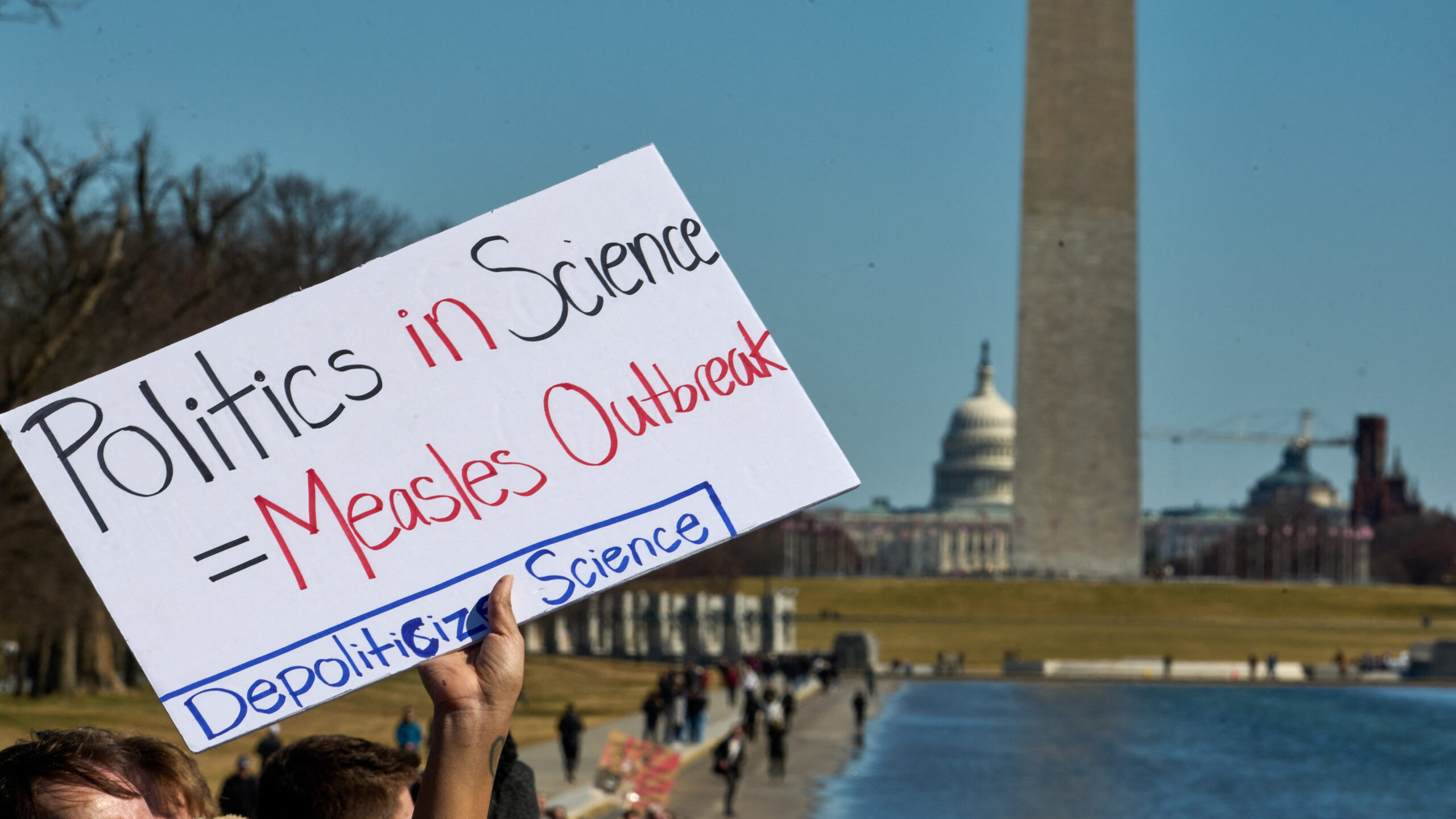Science
Congress Clashes with OMB Over Science Funding in US Budget Battle

The ongoing struggle over science funding in the United States has intensified, with Congress pushing back against the Trump administration’s proposed cuts. Recent appropriations in the Senate have prioritized research funding at levels comparable to those of previous years, despite the administration’s attempts to limit financial support for scientific endeavors. This development signals a potential standoff between a Congress advocating for scientific advancement and a president whose administration has shown little interest in supporting such initiatives.
Administration’s Approach to Science Funding
The Trump administration’s approach to science funding has raised concerns among researchers and advocates alike. Proposals for severe budget cuts have been accompanied by an unprecedented level of political oversight regarding the allocation of funds. Delays in the approval of research grants have become commonplace, with funds subjected to rigorous scrutiny for ideological alignment. In a particularly controversial move, Russell Vought, the director of the Office of Management and Budget (OMB), has been instrumental in shaping policies that many view as hostile to scientific inquiry.
Vought’s influence is evident in the Project 2025 document, which criticized biomedical research agencies on ideological grounds. The report incorrectly claimed that the National Institutes of Health (NIH) funded unethical research involving fetal tissue and gain-of-function studies linked to COVID-19. These claims have fueled efforts to cut funding for research, including attempts to eliminate scientific inquiry within the Environmental Protection Agency (EPA).
Congress, traditionally a strong supporter of science funding, has begun to assert its influence amid these challenges. While the House of Representatives has seen a marked shift in support for scientific initiatives, the Senate has maintained a more favorable stance, with committees approving funding that aligns with prior budgets under the Biden administration.
Potential Consequences and Future Battles
Despite the Senate’s recent decisions, the path forward for science funding remains fraught with obstacles. Appropriations have largely occurred within smaller committees, raising concerns that broader support may diminish during more visible votes. Additionally, the House of Representatives, known for its more radical factions, poses a further challenge to efforts at bipartisan cooperation.
The complexities of the US budget process add another layer of difficulty. The initial passage of a budget does not guarantee that appropriated funds will be effectively allocated. The administration’s existing controls, including the possibility of imposing ideological criteria on grant approvals, threaten to undermine the intended support for scientific research. Recent executive orders have formalized these restrictive measures, allowing for a range of tactics that could delay or prevent the distribution of funds.
To safeguard the future of science in the US, Congress faces the daunting task of not only increasing funding but also crafting legislation that counters the restrictions imposed by the OMB. This may necessitate a legal confrontation with the administration, particularly if the Supreme Court is called to adjudicate disputes regarding executive power and congressional intent.
The outcome of these ongoing negotiations is critical. While there are signs of resilience from Congress, the long-term viability of the US research enterprise hangs in the balance, as any failure to address these challenges could significantly impact scientific progress. As the debate continues, the commitment of lawmakers to prioritize funding for research will be put to the test, determining whether the United States can maintain its position as a leader in global scientific innovation.
-

 Politics4 weeks ago
Politics4 weeks agoSecwepemc First Nation Seeks Aboriginal Title Over Kamloops Area
-

 World5 months ago
World5 months agoScientists Unearth Ancient Antarctic Ice to Unlock Climate Secrets
-

 Entertainment5 months ago
Entertainment5 months agoTrump and McCormick to Announce $70 Billion Energy Investments
-

 Science5 months ago
Science5 months agoFour Astronauts Return to Earth After International Space Station Mission
-

 Lifestyle5 months ago
Lifestyle5 months agoTransLink Launches Food Truck Program to Boost Revenue in Vancouver
-

 Technology3 months ago
Technology3 months agoApple Notes Enhances Functionality with Markdown Support in macOS 26
-

 Lifestyle3 months ago
Lifestyle3 months agoManitoba’s Burger Champion Shines Again Amid Dining Innovations
-

 Top Stories2 months ago
Top Stories2 months agoUrgent Update: Fatal Crash on Highway 99 Claims Life of Pitt Meadows Man
-

 Politics4 months ago
Politics4 months agoUkrainian Tennis Star Elina Svitolina Faces Death Threats Online
-

 Sports5 months ago
Sports5 months agoSearch Underway for Missing Hunter Amid Hokkaido Bear Emergency
-

 Politics5 months ago
Politics5 months agoCarney Engages First Nations Leaders at Development Law Summit
-

 Technology5 months ago
Technology5 months agoFrosthaven Launches Early Access on July 31, 2025




















